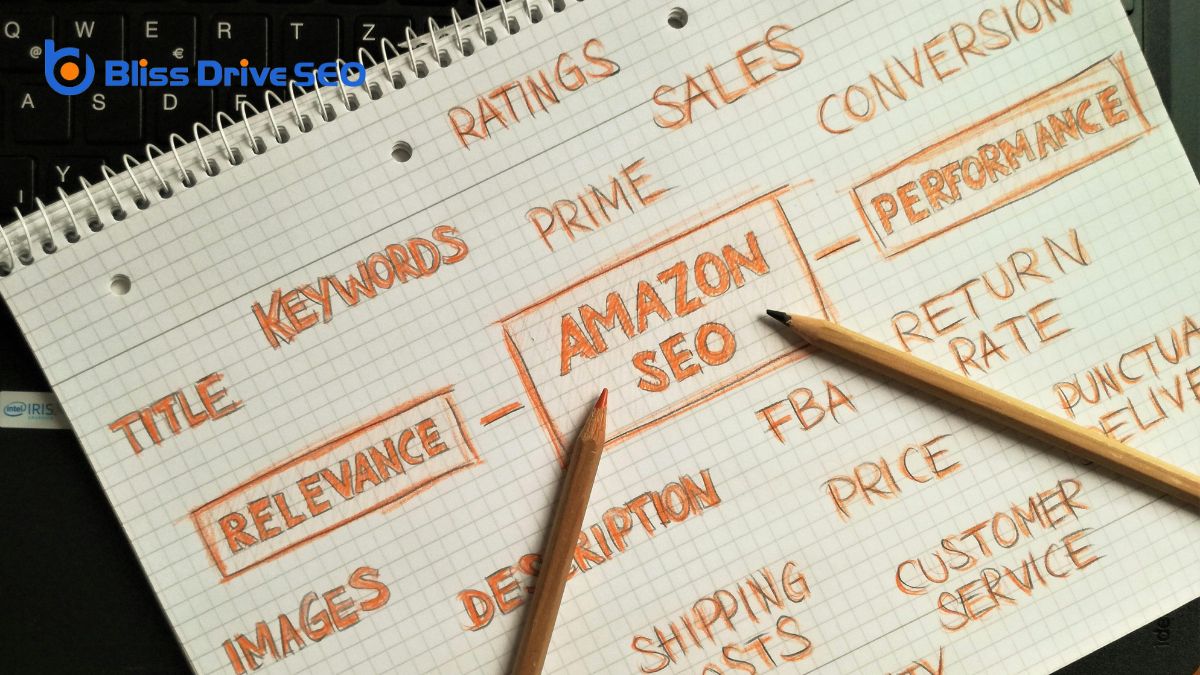Digital Marketing Services
Learn More About Us

To excel in ecommerce keyword researchThe process of finding and analyzing search terms that people enter into search engines., start by understanding search intentThe purpose behind a user’s search query. and analyzing search volume. Evaluate keyword difficulty and utilize long-tail keywordsLonger, more specific keyword phrases that are less competitive and often more targeted. for more targeted traffic. Analyze your competitors' keywordsWords or phrases that users type into search engines to find information. to refine your strategy. Leverage Google's Dynamic Search AdsAds that are automatically generated based on the content of a website. (DSAs) and explore shopping feeds for related term suggestions. Regularly analyze search query reports for new opportunities. Implement content gap analysisIdentifying missing content opportunities compared to competitors. to fill in missing or under-optimized content. These strategies will help you uncover valuable keywords and optimize your ecommerce site effectively. Discover how each approach can boost your online store's success by exploring further.
When it comes to mastering ecommerce keyword research, getting a handle on search intent is essential. Search intent refers to the purpose behind a user's online search, which can be informational, navigational, commercial, or transactional. Understanding these intents helps you tailor your keyword strategy to match users' needs, creating more relevant and targeted content.
For instance, informational searches aim to gather knowledge. Keywords like "how to fix a leaky faucet" cater to this intent.
Navigational searches are when users seek a specific website, so keywords like "Amazon login" are important.
Commercial intent involves users looking to compare products; hence, keywords like "best smartphones 2023" are effective.
Transactional searches indicate readiness to purchase, making keywords like "buy Nike running shoes" crucial.

Grasping the importance of search volume in ecommerce keyword research can't be emphasized enough. Search volume indicates how frequently a keyword is searched each month, guiding you in prioritizing high-demand keywords. By analyzing search volume, you can uncover popular keywords that have the potential to drive significant traffic and visibility to your site.
However, it's crucial to bear in mind that high search volume keywords often come with higher competition, impacting keyword difficulty and ranking potential. To make the most out of search volume analysis, you should balance it with keyword relevance to make sure you're targeting the right audience for organic trafficVisitors who come to a website through unpaid search engine results. growth.
Here are three steps to help you analyze search volume effectively:
Understanding keyword complexity is fundamental for developing a successful ecommerce SEO strategy. When evaluating keyword complexity, you need to take into account several factors, such as search volume, competition level, and domain authority. These metrics will help you determine how challenging it will be to rank for specific keywords and guide your strategy in choosing the right ones.
Tools like Ahrefs, SEMrush, and Moz provide keyword complexity metrics that you can use to assess the competitiveness of keywords. High keyword complexity indicates strong competition, meaning many established websites are already ranking for those keywords. Conversely, low complexity signifies easier ranking opportunities, allowing you to target those keywords more effectively.
Balancing search volume and keyword complexity is vital. High search volume keywords with high complexity might be appealing, but they're often hard to rank for, especially if your domain authority isn't strong. Instead, look for keywords with a moderate search volume and lower complexity. These offerThe specific product or service being promoted by affiliates. a sweet spot where ranking is achievable and the traffic potential is still significant.
Long-tail keywords are a potent tool for ecommerce sites looking to attract highly targeted traffic. These keywords, typically made up of 3-4 words, concentrate on nicheA specific segment of the market targeted by affiliates to promote products or services. search queries. At the same time, they've lower search volumes and their specificity results in higher conversionThe completion of a desired action by a referred user, such as making a purchase or filling out a fo... rates. By utilizing long-tail keywords, you can meet specific customer requirements and capture qualified leads, directing more relevant traffic to your product pages.
Here's how to leverage long-tail keywords effectively:
Although it might seem challenging, delving into competitor keyword analysis is crucial for refining your ecommerce SEO strategy. By examining your competitors' keyword strategies, you can pinpoint successful keywords that drive traffic and conversions. Kickstart the competitor research process by utilizing SEO toolsSoftware and online tools used for various aspects of SEO, such as keyword research and link buildin... like SEMrush or SpyFu. These tools will provide you with insights into your competitors' keyword rankingsThe position at which a website appears in the SERP. and performance.
While scrutinizing their data, search for commercial intent keywords that your competitors are focusing on. These keywords often indicate a higher likelihood of conversions.
Furthermore, discover related keywords that your competitors might be neglecting. This can assist you in identifying keyword-targeting gaps in their strategies, enabling you to seize untapped opportunities.
Take note of the keyword difficulty scores to gauge the level of difficulty in ranking for specific SEO keywords. By adjusting your keyword research strategy based on these insights, you can stay ahead in the competitive landscape.
Harness the information gathered from competitor keyword analysis to optimize your own keyword targeting and enhance your overall SEO performance. This proactive approach guarantees you're always one step ahead in your niche.

When you're ready to boost your ecommerce keyword strategy, start by leveraging top keywords research tools like Ahrefs, SEMrush, and Google Search ConsoleA tool by Google that helps monitor and maintain your site's presence in search results.. These platforms offer essential features such as competitor keyword analysis and search volume insights.
Exploring the competitive landscape of ecommerce requires robust keyword research tools to stay ahead of the curve. To give you an edge, here are some top keyword research tools you'll want to ponder:
Having the right tools is just the beginning; utilizing them effectively can make all the difference. For competitor analysis, tools like SEMrush or SpyFu are invaluable. They allow you to peek into your competitors' keyword strategies and rankings, offering insights that can refine your own approach. By identifying the successful keywords your competitors are targeting, you gain essential data to inform your strategy.
Look for keyword targeting gaps—these are the areas where your competitors might be missing valuable keywords. By capitalizing on these gaps, you can position your ecommerce site to attract traffic they're overlooking. This competitive analysis not only helps you find keywords that work but also reveals opportunities for optimization.
Regularly conducting competitor analysis keeps you updated on changing trends. As the market evolves, so should your keyword strategy. Adapting to these trends guarantees you stay competitive and relevant. Remember, keyword research isn't a one-time task; it requires constant vigilance and adjustment. Using tools effectively to gain insights and adjust your strategies will help you maintain an edge in the ever-changing ecommerce landscape.
Leveraging Dynamic Search Ads (DSAs) can help you identify product categories and discover new keywords by using Google's web crawling technology.
By setting up dynamic ad targets, you can precisely target product categories based on your site content.
Additionally, reviewing search queries matched to dynamic ads can reveal new keyword opportunities for your e-commerce campaigns.

When you're aiming to identify product categories effectively, Dynamic Search Ads (DSAs) can be an invaluable tool. DSAs use Google's web crawling technology to scan your site and match your ads to relevant searches. This method simplifies identifying product categories and making sure your ads are hitting the right targets.
Here are three steps to leverage DSAs for identifying product categories:
Additionally, leveraging Shopping Feeds can be beneficial. Analyzing top products and related terms within these feeds can provide insights into effective e-commerce keyword ideas. By following these eCommerce Keyword Research Strategies, you can optimize your campaigns and better identify product categories.
Dynamic Search Ads (DSAs) offer a powerful way to discover new keywords for your e-commerce campaigns. By leveraging Google's organic web crawling technology, DSAs can automatically match your ads to relevant search queries, illuminating keyword opportunities you might've missed.
Begin by setting up dynamic ad targets based on your site content. This step helps identify relevant product categories that potential customers are searching for.
Once your DSAs are running, access the list of search queries matched to your dynamic ads. This list is a goldmine for uncovering new keywords that resonate with your audience. You can then incorporate these new terms into your keyword research and strategy.
Don't overlook the insights from your Shopping Campaigns. Use their feeds to gather additional e-commerce keyword ideas for your search ad groups. By monitoring these search queries, you can pinpoint top-performing terms. Integrate these into your campaigns for better keyword optimization.
To uncover valuable e-commerce keyword ideas, start by diving into your Shopping campaigns' feeds. This rich source of data from your top products can provide insights that are often overlooked. Here's how you can leverage these feeds effectively:

When you analyze search query reports, you can identify high-performing terms that drive traffic and conversions. These reports also help you spot irrelevant queries, allowing you to utilize negative keywords effectively. By focusing on these insights, you'll optimize your keyword strategy and boost your ROI.
Search query reports are a goldmine for uncovering high-performing keywords that customers use in Google Shopping Campaigns. By delving into these reports, you can identify the top terms driving traffic and conversions for your e-commerce site. Here's how you can harness this data to optimize your keyword performance and capture relevant traffic.
First, focus on the search query data provided by your Shopping Campaigns. This data reveals specific phrases and terms resonating with potential customers, giving you a clear understanding of what's working.
Regularly monitoring and adjusting your keyword strategies based on these insights guarantees you're always optimizing for the best possible results in your Google Shopping Campaigns.
Effectively managing your Google Shopping Campaigns isn't just about finding the right keywords; it's also about identifying which terms to avoid. Analyzing search query reports in Google Ads is essential for discovering irrelevant or underperforming keywords. These reports provide insights into the actual queries triggering your ads, helping you spot the terms that don't align with your product offerings.
Negative keywords are your best allies here. By adding them to your campaigns, you prevent your ads from showing up for irrelevant searches, thereby reducing unnecessary ad spendThe total amount of money spent on advertising campaigns.. Regularly reviewing and updating your negative keyword lists can greatly enhance your campaign performance.
When you exclude these underperforming keywords, you improve your click-through rates and boost your ROI. It's not just about saving money; it's about making every penny count.
Search query reports are a valuable tool for this process. They highlight keyword opportunities you might otherwise miss and help you fine-tune your campaigns. This ongoing refinement ensures your ads reach a more pertinent audience, ultimately driving better results for your ecommerce business.
A detailed content gap analysis is essential for enhancing your ecommerce keyword strategy. By pinpointing missing keywords and topics in your content, you can greatly enhance your SEO rankings and attract more organic traffic. This process involves examining your competitors' content to discover keywords they rank for, but you don't. Tools like Ahrefs and SEMrush can facilitate this task, offering in-depth insights that enable you to fill these gaps effectively.
Here are three steps to execute an all-encompassing content gap analysis:
Executing a content gap analysis isn't just a one-time task but an ongoing process. It guarantees that your keyword strategy remains competitive and all-inclusive.
To effectively perform keyword research for ecommerce, you should understand search volume, keyword difficulty, and relevance. Use tools like Ahrefs to identify high-volume, low-competition keywords, track rankings, and focus on keywords that attract qualified leads.
You'll want to choose keywords by considering search volume, competition, and relevance. Aim for high-volume, low-competition keywords, and use tools like Ahrefs. Focus on keywords that attract qualified leads and track your keyword rankings regularly.
To rank your keywords, focus on search intent and use tools like Ahrefs. Target long-tail keywords for specific traffic and analyze competitors. Prioritize keywords that signal qualified leads to improve rankings and drive conversions.
To get SEO results for ecommerce, analyze search volume, keyword difficulty, and relevance. Use tools like Ahrefs to refine your strategy. Focus on long-tail keywords, user value, and intent-based strategies to drive targeted and high-conversion traffic.
By mastering these ten ecommerce keyword research strategies, you'll boost your search rankings and drive targeted traffic to your online store. Don't just focus on high-volume keywords; understand search intent and leverage long-tail variations. Analyze competitors and utilize tools like dynamic search ads and shopping feeds. Regularly review search query reports and perform content gap analyses to stay ahead. Implement these tactics, and you'll see your ecommerce business thrive in no time.
